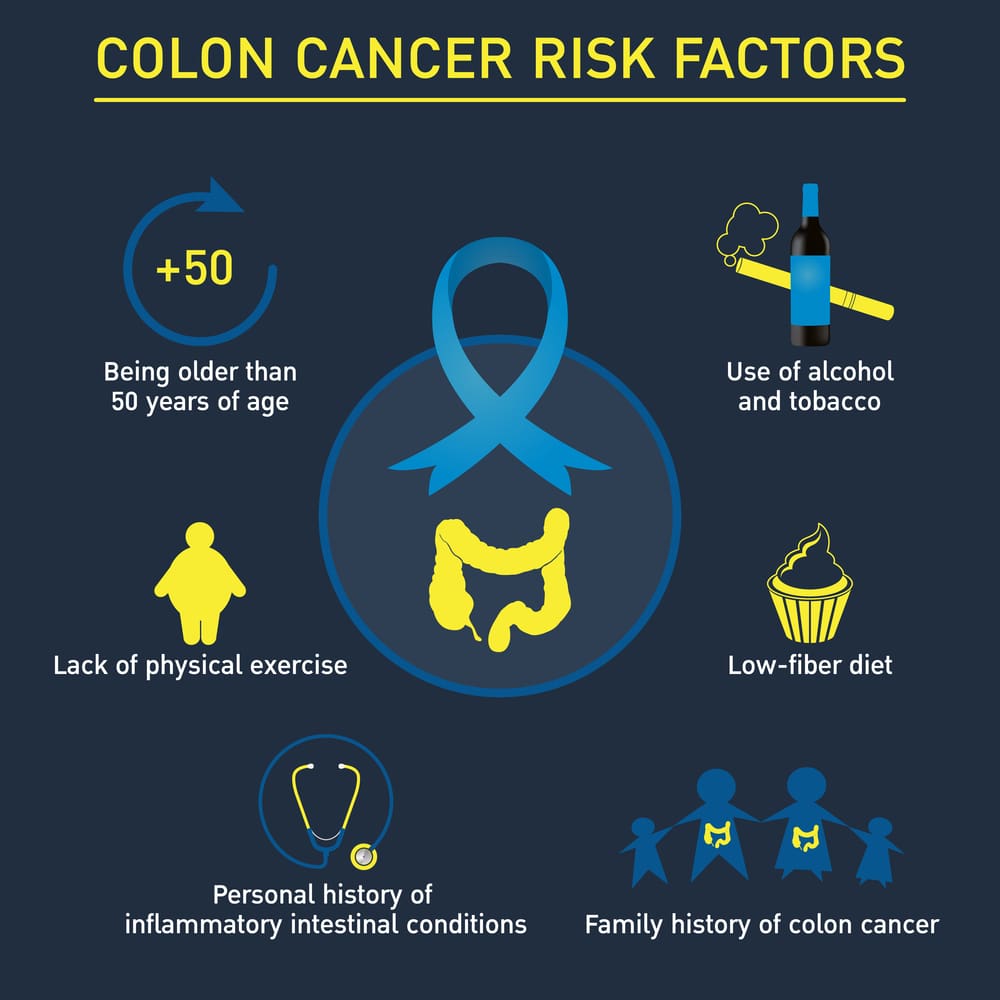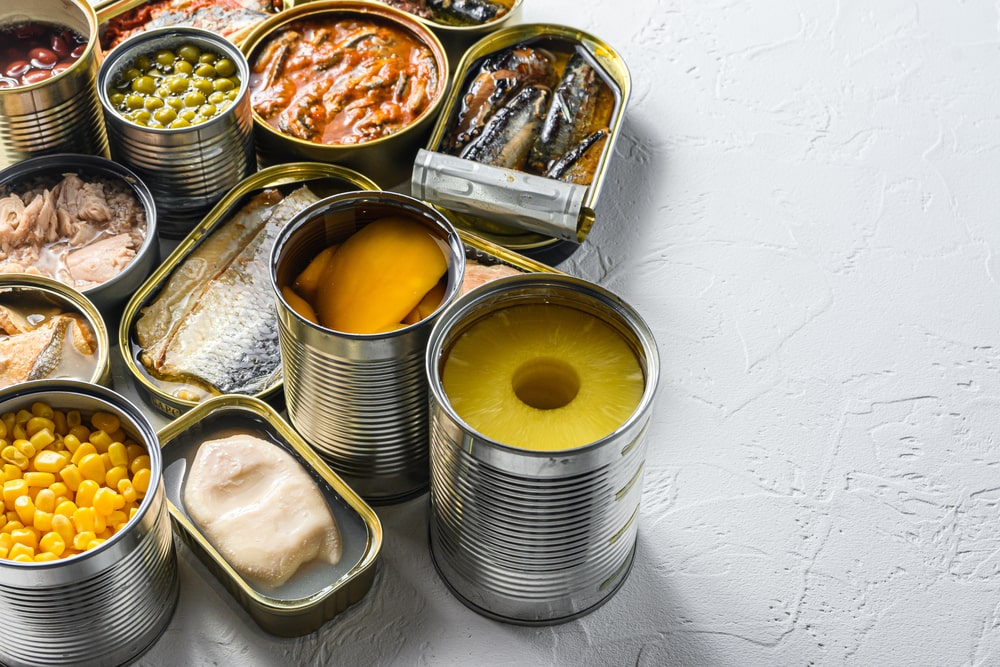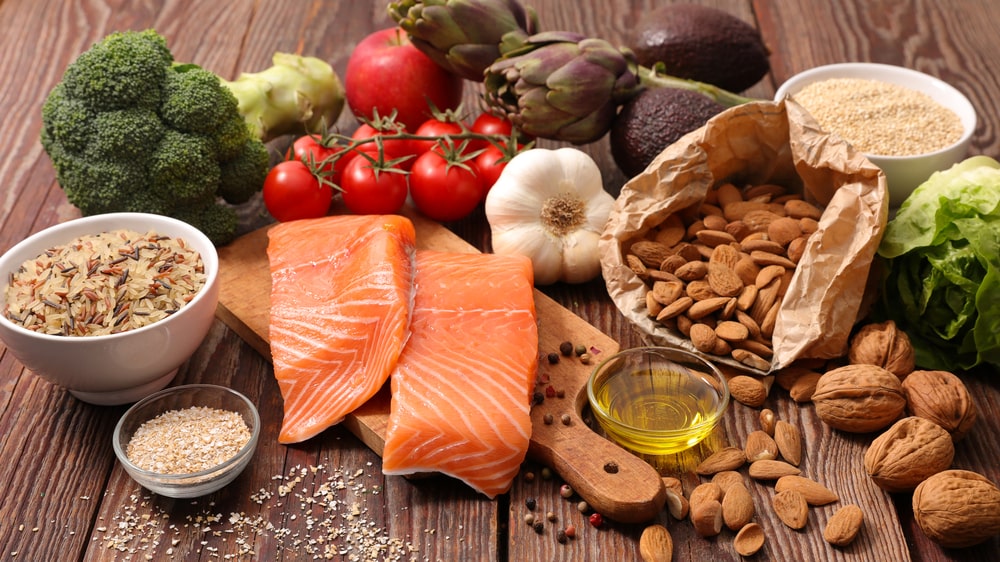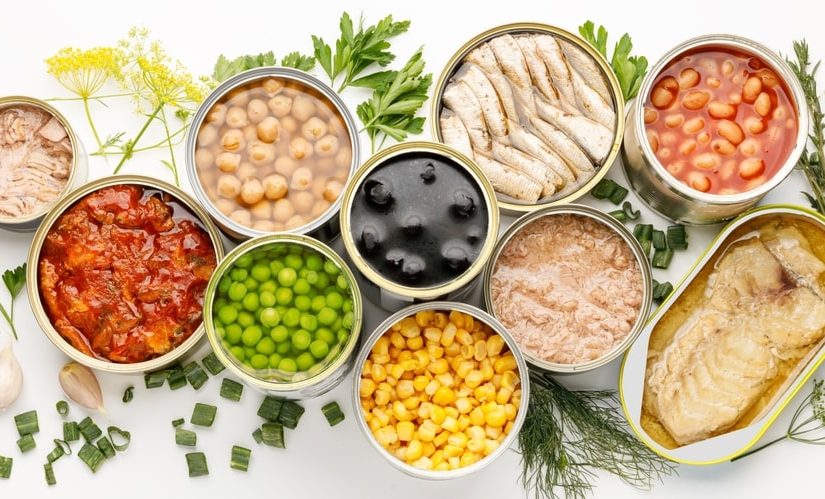What Food Causes Colorectal Cancer(CRC)?
In today’s fast-paced world, the importance of maintaining a healthy diet cannot be emphasized enough. While proper nutrition is essential for overall well-being, it also plays a significant role in preventing certain diseases, including colorectal cancer. Colorectal cancer, which affects the colon or rectum, is a common and potentially life-threatening condition.
While several factors contribute to its development, including genetics and lifestyle choices, diet plays a crucial role. This blog will explore the relationship between food and colorectal cancer and shed light on what food causes colorectal cancer.
Causes of Colorectal Cancer:

Colorectal cancer, a term encompassing cancers that develop in the colon or rectum, is a significant health concern worldwide. It is the third most commonly diagnosed cancer and the second leading cause of cancer-related deaths. While the impact of colorectal cancer can be devastating, early detection and effective treatment can significantly improve outcomes.
Age and Genetic Factors:
Age is a significant risk factor for colorectal cancer. The disease commonly affects individuals over the age of 50, with the risk increasing as one gets older. Genetic factors also play a role, as certain inherited gene mutations, such as Lynch syndrome and familial adenomatous polyposis (FAP), can predispose individuals to colorectal cancer.
Lifestyle Choices and Diet:
Unhealthy lifestyle choices and dietary patterns have been linked to an increased risk of colorectal cancer. Moreover, What food causes colorectal cancer? A diet high in red and processed meats, such as beef, pork, and deli meats, has been associated with a higher likelihood of developing the disease. These foods may promote inflammation and contribute to the development of cancer.
Additionally, a low intake of dietary fiber, fruits, and vegetables, which are protective against colorectal cancer, can also increase the risk. While the direct link between chronic stress and colorectal cancer is still being studied, prolonged stress can lead to unhealthy coping behaviors such as poor dietary choices, excessive alcohol consumption, and lack of exercise, which can increase the risk of cancer.
Sedentary Lifestyle and Obesity:
Apart from the question: What food causes colorectal cancer? There are other reasons too. Lack of physical activity and obesity have been identified as risk factors for colorectal cancer. Regular exercise helps maintain healthy body weight, improves bowel function, and reduces inflammation in the body. Sedentary behavior may lead to hormonal imbalances that promote cancer development.
To reduce the risk of colorectal cancer associated with a sedentary lifestyle, it is recommended to incorporate regular physical activity into your routine. Prolonged sitting and inactivity can contribute to slower bowel movements and constipation.
Studies suggest that increased transit time of waste material in the colon may expose the colon lining to potential carcinogens for a longer period, increasing the risk of colorectal cancer.
Tobacco and Alcohol Use:
The use of tobacco products, including smoking, has been strongly associated with an increased risk of colorectal cancer. Smoking exposes the body to harmful chemicals that can damage the DNA in cells, including those in the colon and rectum. Similarly, excessive alcohol consumption has been linked to a higher likelihood of developing colorectal cancer.
Inflammatory Bowel Disease (IBD):
Individuals with chronic inflammatory bowel diseases, such as ulcerative colitis and Crohn’s disease, are at a higher risk of developing colorectal cancer. With the question of What food causes colorectal cancer, the bowels also cause and effect. Due to the increased risk, individuals with IBD undergo regular surveillance colonoscopies to detect any precancerous or cancerous changes in the colon.
The frequency of these screenings is determined by the type and severity of IBD, as well as other risk factors. Chronic inflammation plays a significant role in the development of colorectal cancer in individuals with IBD. Prolonged inflammation can lead to genetic changes, increased cell turnover, and the production of reactive oxygen species, all of which can contribute to cancer development.
Other Risk Factors:
Other factors that may increase the risk of colorectal cancer include a personal history of colorectal polyps or previous colorectal cancer, type 2 diabetes, certain inherited conditions (e.g., Turcot syndrome), radiation therapy for previous cancers, and certain racial or ethnic backgrounds (e.g., African Americans have a higher incidence of colorectal cancer).
What food causes Colorectal cancer?

Red and Processed Meat:
Numerous studies have suggested that high consumption of red and processed meats can elevate the risk of developing colorectal cancer.
Red meats such as beef, pork, and lamb, particularly when cooked at high temperatures or processed (e.g., cured, smoked, or preserved), have been associated with an increased likelihood of colorectal cancer.
These meats contain compounds that can damage the lining of the colon, promoting cancerous growth. While occasional consumption is unlikely to pose a significant risk, it is advisable to limit intake and opt for leaner protein sources such as fish, poultry, and plant-based alternatives.
Sugary Foods and Drinks:
A diet rich in sugary foods and drinks has been linked to several health concerns, including obesity, type 2 diabetes, and cardiovascular diseases. Furthermore, studies have indicated a potential association between high sugar intake and colorectal cancer.
Consuming excessive amounts of sugary beverages, sweets, desserts, and processed snacks can lead to weight gain and insulin resistance, both of which may contribute to the development of colorectal cancer.
Therefore, it is crucial to moderate the consumption of sugary items and prioritize whole, unprocessed foods.
Highly Processed Foods:
The modern diet often includes a wide array of highly processed foods, such as ready-to-eat meals, fast food, and packaged snacks. These foods are typically high in unhealthy fats, refined carbohydrates, and additives while being low in essential nutrients.
Research suggests that a diet consisting primarily of highly processed foods is associated with an increased risk of colorectal cancer.
To reduce this risk, it is advisable to focus on whole, nutrient-dense foods such as fruits, vegetables, whole grains, and legumes.
Alcohol:
Apart from the question of What food causes colorectal cancer? Intake of alcoholic beverages has been linked to an increased risk of colorectal cancer.
Alcohol can induce inflammation in the colon, impair nutrient absorption, and generate harmful compounds that promote cancer growth.
To mitigate the risk, it is recommended to consume alcohol in moderation or avoid it altogether.
Fiber:
Dietary fiber plays a vital role in maintaining digestive health. Insufficient fiber intake such as chickpea, lentils, and oats has been associated with an increased risk of colorectal cancer.
Fiber helps to regulate bowel movements, promotes healthy gut microbiota, and aids in the removal of harmful substances from the colon.
Animal fats:
Animal fats, especially if consumed over an extended period of time, have the potential to produce significant chronic inflammation, which can also result in obesity and type 2 diabetes.
There is mounting evidence that the pro-inflammatory environment that obese patients live in increases their risk of colorectal cancer.
Processed Grains:
A high-residue diet requires the colon and rectum to function more hence, creates stress. Processed grains can raise your risk of colon cancer, much like processed meats do.
White bread and other foods made with white flour may contain refined carbohydrates that raise blood sugar levels and cause insulin resistance.
Your risk of colon cancer as well as other cancers like kidney cancer may increase as a result. Another major source of fiber in people’s diets is grains.
White flour foods, however, do not contain as much fiber as whole grain foods since they are so processed.
Your fiber intake can be increased and your risk of colon cancer reduced by choosing whole grain products like oats, pasta, and bread.
Foods to prevent Colorectal cancer:

Colorectal cancer is a serious health concern, but certain dietary choices may help reduce the risk of developing it. Here are some foods that have been associated with potential preventive effects against colorectal cancer:
High-fiber foods:
Foods rich in dietary fiber help maintain a healthy digestive system and may reduce the risk of colorectal cancer. Some examples include whole grains (oats, brown rice, quinoa), legumes (beans, lentils), fruits (apples, pears, berries), and vegetables (broccoli, carrots, sweet potatoes).
Cruciferous vegetables:
Cruciferous vegetables are known for their cancer-fighting properties. They contain compounds like sulforaphane and indole-3-carbinol, which may help protect against colorectal cancer. Examples include broccoli, cauliflower, Brussels sprouts, and cabbage.
Garlic and onions:
These aromatic vegetables contain organosulfur compounds that have been associated with potential anticancer effects, including against colorectal cancer.
Leafy greens:
Green leafy vegetables like spinach, kale, and collard greens are rich in vitamins, minerals, and antioxidants that may contribute to reducing cancer risk.
Berries:
Berries are packed with antioxidants and other beneficial compounds that can help protect cells from damage and reduce inflammation, potentially lowering the risk of colorectal cancer.
Nuts and seeds:
Nuts (e.g., almonds, walnuts) and seeds (e.g., flaxseeds, chia seeds) are good sources of healthy fats, fiber, and antioxidants, which may support colorectal health.
Fish:
Fatty fish like salmon, mackerel, and sardines contain omega-3 fatty acids, which have anti-inflammatory properties and could play a role in reducing cancer risk.
Turmeric:
Curcumin, the active compound in turmeric, has demonstrated potential anticancer properties and may be beneficial in preventing colorectal cancer.
Green tea:
Green tea contains polyphenols, particularly epigallocatechin gallate (EGCG), which has been associated with cancer-preventive effects.
Tomatoes:
Tomatoes are a source of lycopene, a powerful antioxidant that may help protect against colorectal cancer.
End Note:
While diet alone cannot guarantee the prevention of colorectal cancer, it is an essential aspect of a comprehensive approach to reducing the risk.
By avoiding or limiting the consumption of red and processed meats, sugary foods and drinks, highly processed foods, and excessive alcohol, and ensuring an adequate intake of dietary fiber, individuals can make significant strides in promoting colorectal health.
Embracing a balanced diet that includes a variety of whole, unprocessed foods can contribute to overall well-being and reduce the risk of colorectal cancer as part of a healthy lifestyle.
FAQs:
Does Colorectal cancer cause pain?
Yes, abdominal pain and aches are common in Colorectal cancer.
Can Colorectal cancer cause hemorrhoids?
No, there has been no relation whatsoever proven in research.
Is Colorectal cancer the same as colon cancer?
They both are different and named according to their origin.
Can Colorectal cancer be cured?
Yes, Colorectal cancer can be cured.
Is Colorectal cancer genetic?
We learned about Colorectal cancer and what food causes colorectal cancer. But in some instances, colorectal cancer can be genetic too. The name of the syndrome is Lynch syndrome, an inherited genetic disorder, which has been found to be causing colorectal cancer.
References:
- https://www.reidhealth.org/blog/7-foods-to-avoid-in-a-colon-cancer-diet
- https://www.wcrf.org/what-food-should-colorectal-cancer-survivors-eat
- https://my.clevelandclinic.org/health/diseases/14501-colorectal-colon-cancer
Read Also:
https://www.offshorecheapmeds.com/blog/what-food-reduces-blood-sugar/

